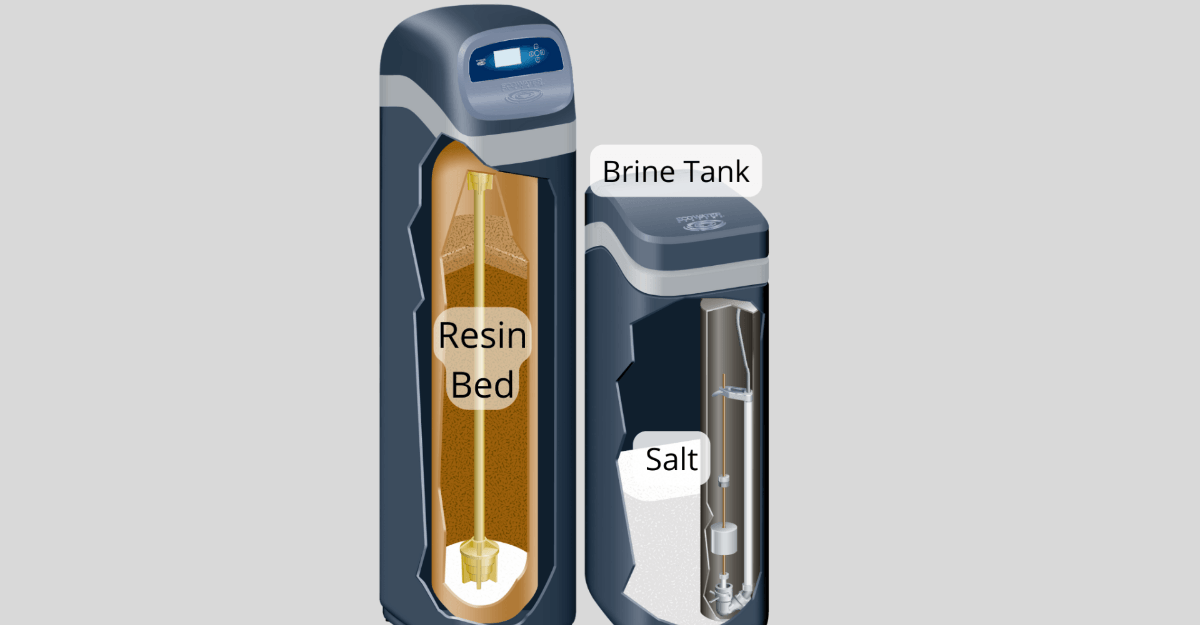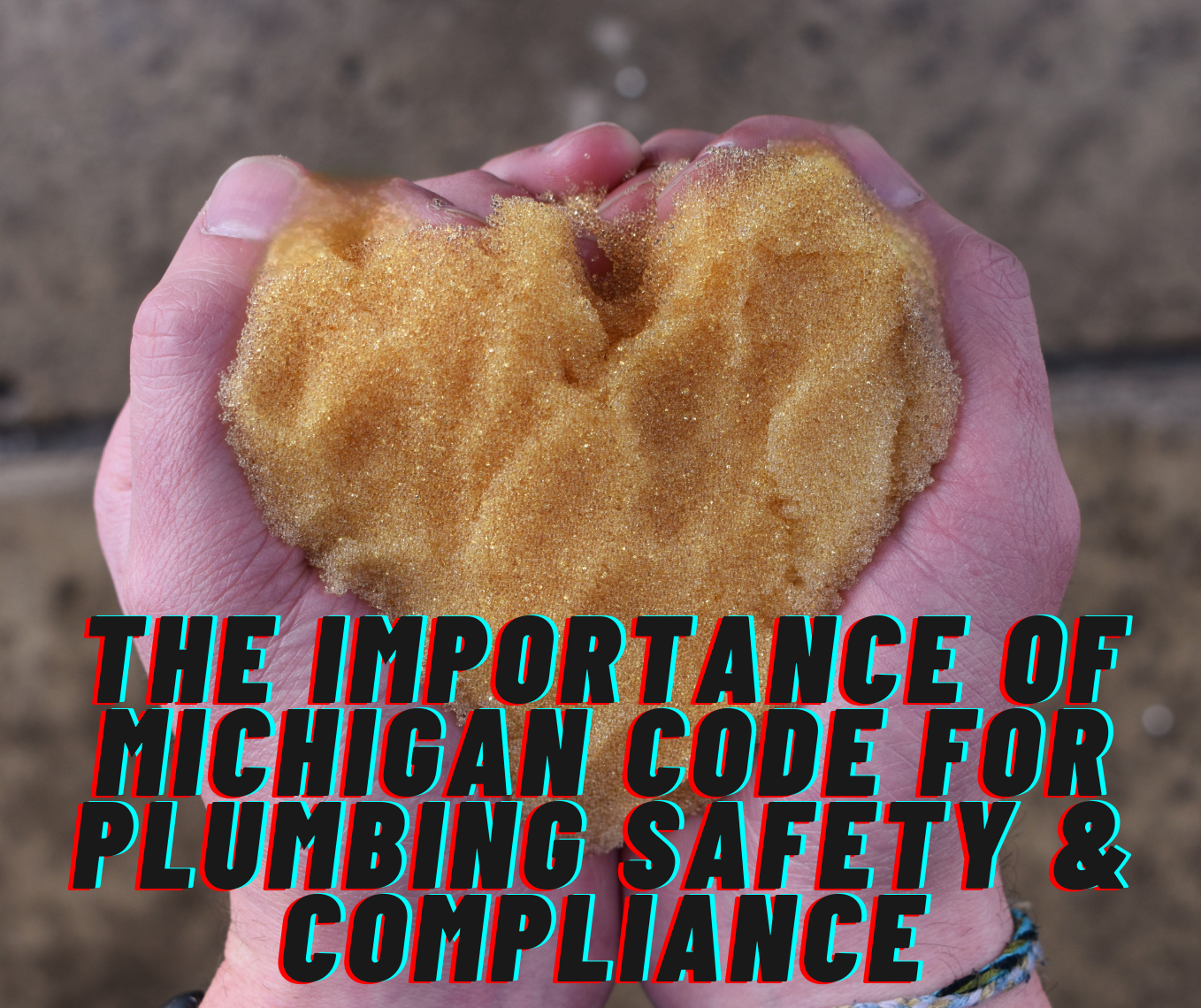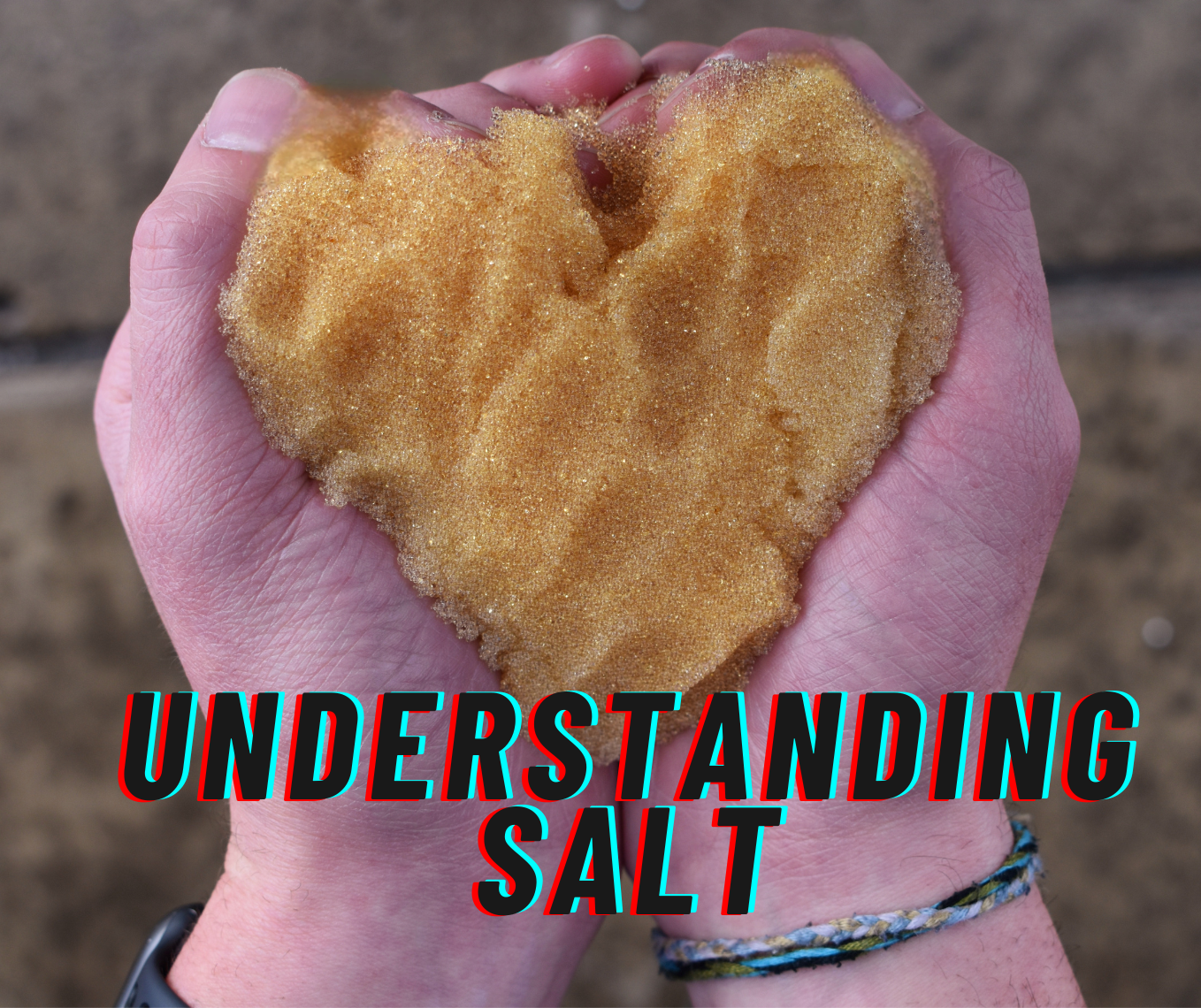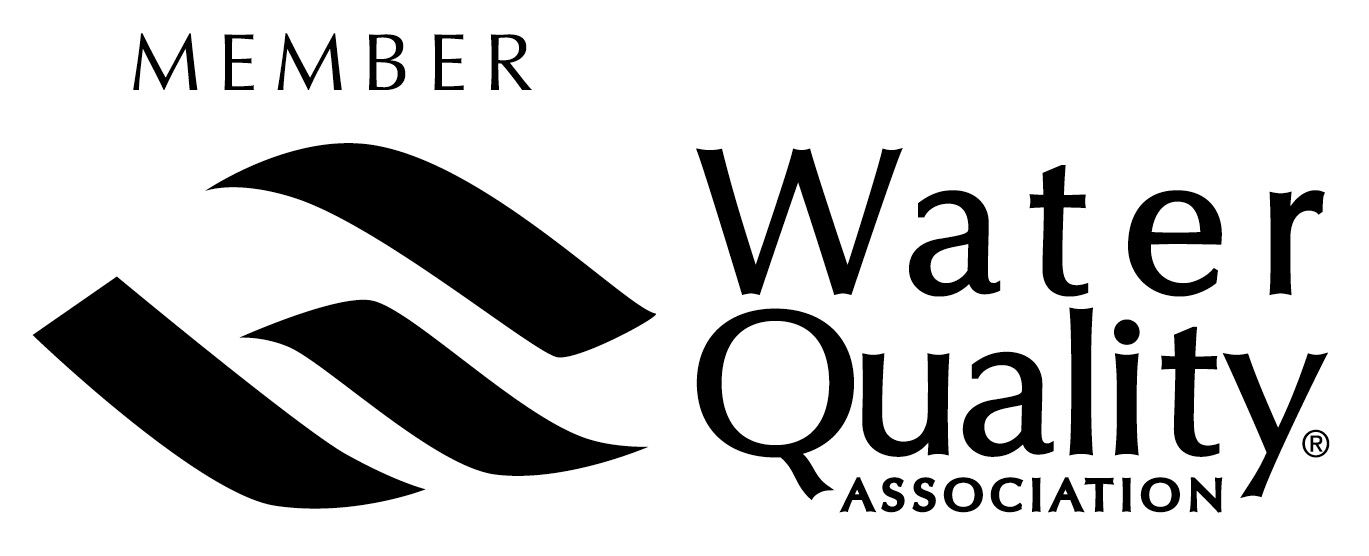Blog Layout

What is Hard Water
Hard water contains a high concentration of natural minerals, primarily calcium and magnesium, which are picked up as water travels through rocks and sediment. While these minerals are not directly harmful, hard water often includes other substances like VOCs (Volatile Organic Compounds) and PFASs (Per- and Polyfluoroalkyl Substances), that may pose health risks. These contaminants enter water sources, such as private wells, community wells, or municipal systems. We'll dive deeper into VOCs, PFAS, and similar compounds in future blog posts.
The Downside to Hard Water
Hard water isn't just tough on your appliances it can take a toll on your skin, hair, and plumbing too.
Although calcium and magnesium aren't harmful to consume, they leave behind visible mineral deposits that can clog faucets, showerheads, dishwashers, water heaters, and washing machines. This build up reduces efficiency, increases energy consumption, and shortens the lifespan of your appliances.
Signs of hard water include:
- White, chalky buildup on fixtures and dishes
- Stiff laundry or fabrics that wear out quickly
- Soap that doesn't lather well or leaves residue
Not sure if you have hard water? Visit any of our locations for a simple five minute test to determine your water's hardness level
Enter Our Hero: The Water Softener
Water softeners are specifically designed to combat the problem caused by hard water using a process called ion exchange.
A common myth: Many people believe water softeners add salt to their drinking water, creating a salty taste. In reality, the salt in the brine tank is used to recharge the softener's resin, not to soften the water itself. The amount of sodium introduced into softened water is negligible less than what is found in a single slice of bread.
Behind the Scenes: Ion Exchange Process
Inside a water softener, resin beads charged with sodium ions remove calcium and magnesium from hard water. Here's how it works:
- As hard water flows through the resin tank, the calcium and magnesium ions attach to the resin beads, displacing the sodium ions
- This exchange reduces the hard water minerals, leaving the water 'softened'.
Regeneration
Over time, the resin beads become saturated with calcium and magnesium. To restore the softener's functionality, the system undergoes a regeneration cycle:
- Salt from the brine tank creates a saltwater solution
- This solution flushes through the resin tank, replacing calcium and magnesium ion with fresh sodium ions
- The displaced minerals are flushed out as waste water
Regeneration typically happens at night, often around 2am, ensuring no hard water enters your home during this process.
Benefits of Softened Water
Softened water offers numerous benefits for your home, appliances, and personal care.
For your home:
- Protects plumbing: presents mineral buildup, extending the lifespan of pipes and fixtures
- Increases energy efficiency: reduces strain on water heaters and other appliances
- Makes cleaning easier: reduces soap scum and hard water stains on surfaces
For appliances:
- Extends the life of water heaters, dishwashers, and washing machines
- Ensures spotless dishes and silverware
For personal care:
- Leaves skin softer and hair more manageable
- Improves soap and shampoo lathering, reducing product use and residue
- help alleviate dryness and irritation, especially for those with eczema or sensitive skin
Conclusion
A water softener is your ultimate defense against the challenges of hard water. By understanding the ion exchange process and the benefits of softened water, you can make informed decisions about improving your home's water quality.
Regular maintenance, such as annual tune-ups, proper regenerations, and salt level monitoring is essential to keep your system running smoothly.
At Douglas Water Conditioning, we've been your local trusted sources for water treatment since 1968. If you have any questions about your water treatment, don't hesitate to contact us. We're here to help! Cheers to your water perfected.

By 7016420049
•
April 1, 2025
Ensuring your home's plumbing meets Michigan safety and compliance standards is essential for protecting your water quality, health, and property value. In this blog, we break down the importance of Michigan Plumbing Code, how it prevents water contamination and hazardous waste disposal issues, and the legal and financial risks of non-compliance. Learn why hiring a licensed professional is crucial and how Douglas Water Conditioning upholds the highest standards to keep your home safe and efficient. Read more to discover how proper plumbing can save you time, money, and peace of mind!

By 7016420049
•
March 3, 2025
Get to Know: Scott Shepherd - Owner Have you ever wondered who keeps Douglas Water Conditioning running day to day? Well, allow me to introduce you to one of those guys - Scott Shepherd, one of the four owners of Douglas Water Conditioning. Scott's journey with Douglas Water Conditioning began in November 1989, when he was just 16 years old. His father, a fireman, encouraged him to stop by and visit Doug Lanni, a fellow fire fighter who owned a small, but growing water treatment business. Scott started in the shop, but was quickly moved to lead the salt delivery department - all on his own. Back then, there were no GPS device and maps often didn't reflect the rapidly expanding neighborhoods. Scott's experience as a hunter helped him navigate unmarked roads and unlabeled houses, using landmarks and cardinal directions to get the job done.

February 6, 2025
Understanding the Type of Salt for Water Softeners Have you ever wondered why you need to put salt in your brine tank? Does salt actually make the water soft? Does the brand or type of salt you use matter? In this blog post, we'll explore the role of salt in water softeners , review different types of salt, and discuss how to choose the best option for your system. The Role of Salt in Water Softeners Contrary to popular belief, salt isn't what directly softens your water. The magic happens through a process called ion exchange , where resin beads inside your softener remove hard water causing minerals like calcium and magnesium. Over time, these minerals accumulate on the resin beads, requiring 'cleaning' to maintain efficiency and performance. This is where salt plays a vital role. When dissolved in water, salt creates a brine solution that 'cleans' the resin beads by flushing away the accumulated minerals, allowing them to continue softening your water. Choosing the right salt not only improves the performance, but also extends the life of your water softener. Different Type of Water Softener Salt Solar Salt How it's made: Solar salt is produced by evaporating seawater or brine, typically collected through solution mining, and then harvested from outdoor pools Pros: Purity of about 99.5% making it suitable for water softeners Cost - effective and widely available Cons: The outdoor harvesting process may introduce insoluble materials like rocks, which can accumulate in the brine tank, causing performance issues and requiring more frequent cleaning Evaporate Salt How it's made: Like solar salt, evaporated salt starts with solution mining. However, the evaporation process occurs in a controlled, indoor environment where heat and steam remove excess water. This results in a high purity level of about 99.9% Pros: High purity reduces brine tank buildup Ideal for high - efficiency water softeners Brands like Dura-Cube are pressed for extra hardness, minimizing issues like mushing and bridging Cons: Slightly more expensive than solar salt Potassium Chloride What it is: An alternative to sodium-based salts, potassium chloride replaces hard water minerals with potassium during the regeneration cycle. Pros: Suitable for those on low-sodium diets or in areas where sodium discharge is restricted Cons: Lower purity (around 99.1%) More expensive than traditional salts Harvesting methods can lead to similar issues as solar salt, such as brine tank buildup. Maintenance Tips for Salt in Water Softeners Monitor Salt Levels: Only refill your water softener when the salt level in the brine tank is six inches or less from the bottom. Overfilling can lead to salt bridging and inefficiencies. Regular Checks: Check your brine tank periodically to ensure it has enough salt to maintain soft water. The frequency of checks depends on factors such as water hardness, household size, and water usage. Avoid Salt Bridges: Excessive bridging (a hard crust that forms above the water level) can interfere with the softener's regeneration process. If you notice a salt bridge, pour hot water into the brine tank to dissolve it and scoop out any remaining salt or debris. Conclusion Choosing the right type of salt is essential for your health of your water softener and your family. High-purity options like Dura-Cube not only reduce buildup, but also extend the lifespan of your system, making maintenance easier and less frequent. At Douglas Water Conditioning, we are proud to provide the highest quality Dura-Cube salt at all our locations. To make managing your salt needs effortless, we offer a worry-free delivery service. With scheduled deliveries, our team brings the salt directly to your home and places it exactly where you need it - whether that's in your softener or a convenient storage spot, saving you time and effort. By signing up for regular deliveries, you can ensure your brine tank is always stocked, keeping your softener running smoothly without the hassle of last minute store trips or heavy lifting. Let us help you keep your water softener in to shape while making your life easier. Contact any of our locations today to learn more about our salt options and delivery services!
WATERFORD LOCATION
,
This is a placeholder for the Yext Knolwedge Tags. This message will not appear on the live site, but only within the editor. The Yext Knowledge Tags are successfully installed and will be added to the website.
(248) 363-8383
This is a placeholder for the Yext Knolwedge Tags. This message will not appear on the live site, but only within the editor. The Yext Knowledge Tags are successfully installed and will be added to the website.
Hi. Do you need any help?
Privacy Policy
| Do Not Share My Information
| Conditions of Use
| Notice and Take Down Policy
| Website Accessibility Policy
© 2025
The content on this website is owned by us and our licensors. Do not copy any content (including images) without our consent.


Share On: